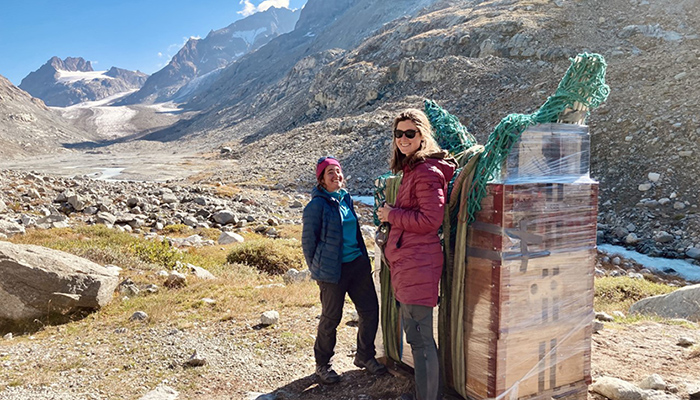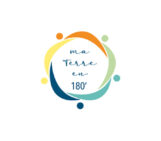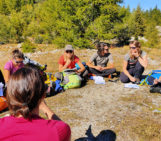
Following an inspiring workshop, as well as our own experiences and informal discussions with students and undergraduate PhD students at the University of Lausanne (see our previous blog post), we collected ideas for a wish list for safe and accessible field classes. It is not exhaustive, and we hope that it will inspire field leaders and students alike.
The wish list is summarized here below. It allowed us to conclude that communication is key to success in all steps involved – before, during and after a field course, to lay out expectations, give space for concerns and to be ready to adapt field schedules accordingly.
Before
- Prepare and communicate a structured plan with timings, breaks, activities, walking time, sleeping arrangements, water access, toilet access and menstruation management, and private needs (prayer, medication, child care).
- Inform yourself about local customs and laws if leading students in a foreign country, and check whether it may affect your group’s activities or individual students’ rights (e.g. sexual orientation laws).
- Prepare an inclusive risk assessment that considers mental health effects on individuals’ and the groups’ safety. Consider effects of peer pressure, discrimination, sexual harassment etc. in the field.
- Try to have a mixed gender team (professor and assistant) during the field camp to ensure that there is someone that can be approached that the students feel more comfortable talking to in case of a personal issue.
- Provide inclusive briefing material, such as a field schedule, an equipment list, the risk assessment, and safety regulations. Explain the documents that you hand out so that everyone understands their importance.
- Provide a registration form with options to inform the class leader about personal needs and preferences, such as dietary requirements, sleeping preferences, shoe or clothing size for safety gear.
- Rather than suggesting that students come forward with questions or concerns, course leaders should take the initiative to already touch upon a range of topics. This may include concerns regarding privacy, dietary requirements, “special arrangements” such as child-care, toilet facilities etc, so the door is open for further discussion.
- Ask students how best to communicate with them. This may need several possible options, including the option to comment anonymously.Codes of conduct and fieldwork community agreements can be helpful in managing the imbalance between different levels of experiences and expectations and set the tone for good team-work, especially during longer stays in the field. Encourage an environment of mutual care and of learning from each other: Each individual’s personal strengths and experiences are valuable to the entire groups’ learning outcome. A student may be very good at drawing sketches of the field site, while another may have those steady hands needed to pipette precisely 1 ml of acid for soil analysis. Being involved and valued in the physical part of fieldwork can help students better understand the scientific context of their data.
During
- The pace of an excursion should allow the learning content to be focussed upon, rather than maximising the walking distance.
- Remind students of the main safety measures prior to a risky activity (ex. taking samples in a river).
- Be aware that some students may feel less fit on some days for a variety of personal reasons. If group activities are planned, encourage students to form groups where everyone has a valuable part to contribute. Communicate that it is also okay to opt out of any physical work without worrying that the lower participation will have a negative impact on the grade.
- Allow for enough privacy and “off-time” – first time students may need lots of time to process new experiences. Avoid too long days. Allow enough time for a healthy amount of sleep.
- Respect practices and habits (prayer, eating schedules, etc.)
- Encourage students to take care of themselves. Lead by good examples: “I am going to drink something now, so I will not get dehydrated”, will encourage students to do the same.
- Inform about the next toilet opportunity and the next time for meals.
- If planning several group activities, a mix up of groups can encourage learning from different levels of experiences and avoid people getting left out or behind.
- Establish a routine of evening feedback and next-day briefings. Take your students’ concerns and anxieties seriously. Address any issues that have emerged during the day and resolve conflicts in a constructive manner. Use strategies for effective communication and conflict resolution.

Field courses can be a great opportunity to learn from each other and to practise good team work. Field course in Switzerland. Photo: Léa Rodari
After
- Ask for students’ feedback on the field course, not only on the academic content but also on logistics and organisation. Allow for anonymous feedback on all points.
- If conflict, sexual harassment, or accidents have occurred during the field, make sure to follow your institute’s official protocol for reporting such issues. keep your students on track and make sure their concerns are heard. Check back regularly with your students after an incident and provide a debrief about the “lessons learned”.
Acknowledgements
We would like to thank all the students and PhD students who shared their experiences openly with us. Many thanks also especially to Dr. Ann Rowan (University of Sheffield / University of Bergen) for the great workshop and to Dr. Georgina King (University of Lausanne) for the precious professor-student exchange about this topic.
A summary of our wish list can also be found on our poster contribution to the session of Fieldwork Safety during the International Mountain Conference in Innsbruck 2022: “Leading by example – a wish list for inclusive, accessible and safe field classes”
Edited by B. Schaefli




Teknik Telekomunikasi
What role does communication play in ensuring success at all stages of a field course, and how should it be utilized before, during, and after the course?
Tel U
Bettina Schaefli
Thanks for this important comment, yes, this is indeed an important topic, we should have a blog post on this.